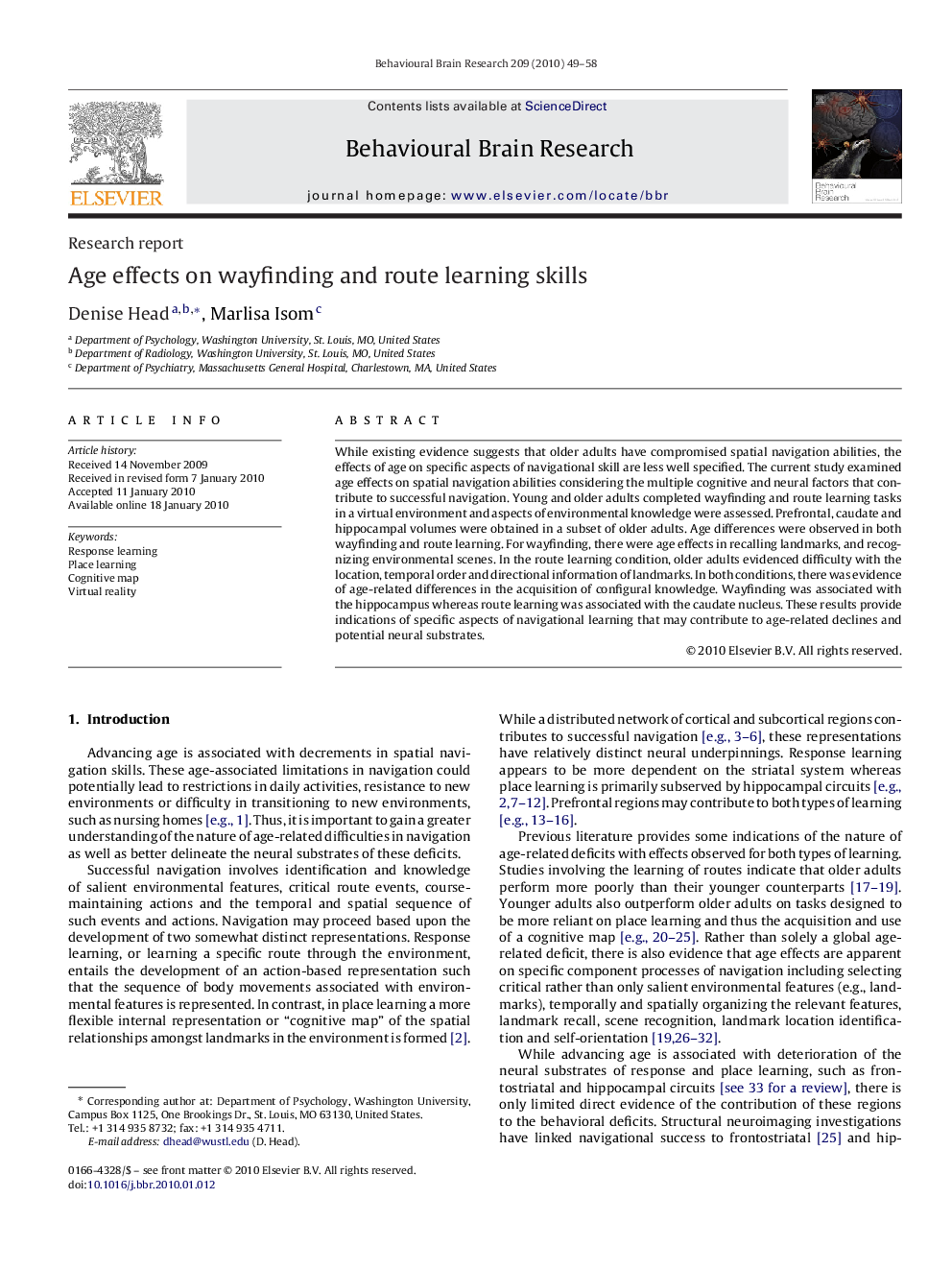| Article ID | Journal | Published Year | Pages | File Type |
|---|---|---|---|---|
| 4314244 | Behavioural Brain Research | 2010 | 10 Pages |
While existing evidence suggests that older adults have compromised spatial navigation abilities, the effects of age on specific aspects of navigational skill are less well specified. The current study examined age effects on spatial navigation abilities considering the multiple cognitive and neural factors that contribute to successful navigation. Young and older adults completed wayfinding and route learning tasks in a virtual environment and aspects of environmental knowledge were assessed. Prefrontal, caudate and hippocampal volumes were obtained in a subset of older adults. Age differences were observed in both wayfinding and route learning. For wayfinding, there were age effects in recalling landmarks, and recognizing environmental scenes. In the route learning condition, older adults evidenced difficulty with the location, temporal order and directional information of landmarks. In both conditions, there was evidence of age-related differences in the acquisition of configural knowledge. Wayfinding was associated with the hippocampus whereas route learning was associated with the caudate nucleus. These results provide indications of specific aspects of navigational learning that may contribute to age-related declines and potential neural substrates.
